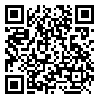Volume 16, Issue 2 (2025 2025)
JIM 2025, 16(2): 44-64 |
Back to browse issues page
Download citation:
BibTeX | RIS | EndNote | Medlars | ProCite | Reference Manager | RefWorks
Send citation to:



BibTeX | RIS | EndNote | Medlars | ProCite | Reference Manager | RefWorks
Send citation to:
Hosseinpour G. (2025). Shiite Understanding of Prophethood in Imam Khomeini's Reading of Fusus al-Hikam. JIM. 16(2), : 3 doi:10.22034/16.2.9
URL: http://erfanmag.ir/article-1-1621-en.html
URL: http://erfanmag.ir/article-1-1621-en.html
Research Institute Of IMAM KHOMEINI And Islamic Revolution
Abstract: (1876 Views)
From Imam Khomeini's perspective, contrary to Ibn Arabi's opinion, the prophets' knowledge of divine commandments does not constitute juristic reasoning (ijtihad), as prophets discover truths based on their awareness of what exists in divine knowledge or the Preserved Tablet (Lawh Mahfuz) according to their spiritual ranks. Similarly, Imam Khomeini holds that, unlike Ibn Arabi's view, abrogation (naskh) does not signify the discovery of a previous prophet's error; rather, the commandment during a previous prophet's time pertained to the specific nation that prophet addressed. Therefore, abrogation means discovering the limitation of the previous commandment, not removing the absolute commandment. In Imam Khomeini's view, the fixed entity (al-ayn al-thabitah) of the Holy Prophet (PBUH) encompasses all fixed entities, including those possessing legislative prophethood, and the fixed entities of the possessors of legislative prophethood are manifestations of the Holy Prophet's fixed entity. Similarly, the external entities of those with legislative prophethood are manifestations of his identity. According to Imam's interpretation, each prophetic period is like a circle, with that period's prophet being the Unicity of union (ahadiyyat al-jam') of that period, and all these circles are points within the circle of the Seal of Prophethood, with the Messenger of God (PBUH) being the seal stone of this circle. Imam Khomeini believes that the Seal of the Prophets is the manifestation of God's Greatest Name (ism al-a'zam Allah), and because the Seal of the Prophets manifests in the form of the Seal of the Saints from his unseen aspect, the Seal of the Saints is the manifestation of this complete Sainthood (wilayah) and one of the manifestations of the Seal of the Prophets in the visible realm. Therefore, in reality, the Seal of the Prophets receives from his own manifestation, and in this sense, the Seal of the Saints has no superiority over the Seal of the Prophets. Thus, this article aims to review, explain and analyze Imam Khomeini's Shiite reading of Ibn Arabi's Fusus al-Hikam on the issue of prophethood.
Article number: 3
Keywords: Ibn Arabi, Imam Khomeini, Infallibility of the Prophets, Abrogation, Seal of the Prophets, Seal of the Saints.
Type of Study: Research |
Subject:
عرفان
Received: 2024/01/21 | Accepted: 2024/09/1 | Published: 2025/07/22
Received: 2024/01/21 | Accepted: 2024/09/1 | Published: 2025/07/22
Send email to the article author
| Rights and permissions | |
 |
This work is licensed under a Creative Commons Attribution-NonCommercial 4.0 International License. |




